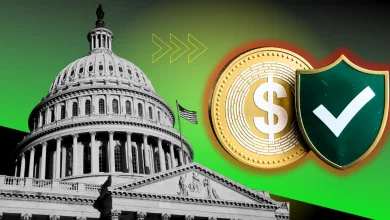
A U.S. appeals court ruled that Treasury Department sanctions on Tornado Cash's smart contracts were illegal.
Roman Storm, co-founder of Tornado Cash, is arguing that the money laundering charges against him should be dropped.
This case highlights the legal challenges surrounding decentralized technologies and the government's ability to regulate them.
Roman Storm, co-founder of Tornado Cash, is fighting to have criminal charges against him dropped after a key court ruling. The Fifth Circuit Appeals Court recently decided that the U.S. Treasury’s sanctions on Tornado Cash’s smart contracts were unlawful.
This ruling could play a crucial role in Storm’s case, which includes serious charges like money laundering. Interestingly, the ruling has also helped Tornado Cash’s native token, Torn, surge 700% last month.
Court Rules Against U.S. Treasury Sanctions
In its ruling, the appeals court made a bold statement by declaring that Treasury’s sanctions on Tornado Cash’s smart contracts were unlawful. As per the ruling, Tornado Cash’s smart contracts are immutable, meaning they can’t be changed or stopped by anyone, not even the creators.
Additionally, the court clarified that these smart contracts are not considered “property” under U.S. law, which means they can’t be blocked or sanctioned by the government. This ruling became the foundation for Storm’s argument to have the serious charges against him, particularly money laundering and conspiracy to violate the International Emergency Economic Powers Act (IEEPA), dismissed.
Storm’s Argument: No Control, No Crime
Storm is now using the court’s ruling to argue that the charges against him are flawed. He points out that Tornado Cash was never a financial institution and that it became immutable in May 2020—well before the alleged money-laundering activities took place. Storm argues that since the protocol became unchangeable, he could not have controlled it or used it for money laundering.
In other words, he believes there’s no solid evidence to prove he laundered money using the platform.
The Case Sparks Debate
This case has sparked significant outrage, particularly among Tornado Cash supporters. The lawsuit was initially filed by Tornado Cash users, supported by Coinbase, against the U.S. Treasury and its Office of Foreign Assets Control (OFAC). Though the users lost the case at first, the ruling was overturned in November 2023, giving Tornado Cash supporters a major win.
The case also highlights how decentralized platforms are treated by U.S. law enforcement. Storm’s challenge against the authorities could lead to changes in how similar cases are handled in the future.
- Also Read :
Understanding the Charges and Sanctions
This ongoing legal battle is part of a larger story. In August 2023, the U.S. Department of Justice charged Roman Storm and co-founder Roman Semenov with helping launder over $1 billion in cryptocurrency, including funds allegedly linked to the North Korean hacker group Lazarus. Semenov is still on the run, while the third co-founder, Alexey Pertsev, was arrested in the Netherlands in 2022.
Tornado Cash was sanctioned by the U.S. Treasury in 2022 for enabling unverified transactions and allegedly helping cybercriminals steal over $7 billion since 2019.
Never Miss a Beat in the Crypto World!
Stay ahead with breaking news, expert analysis, and real-time updates on the latest trends in Bitcoin, altcoins, DeFi, NFTs, and more.
This case could determine how governments will regulate the decentralized future.








